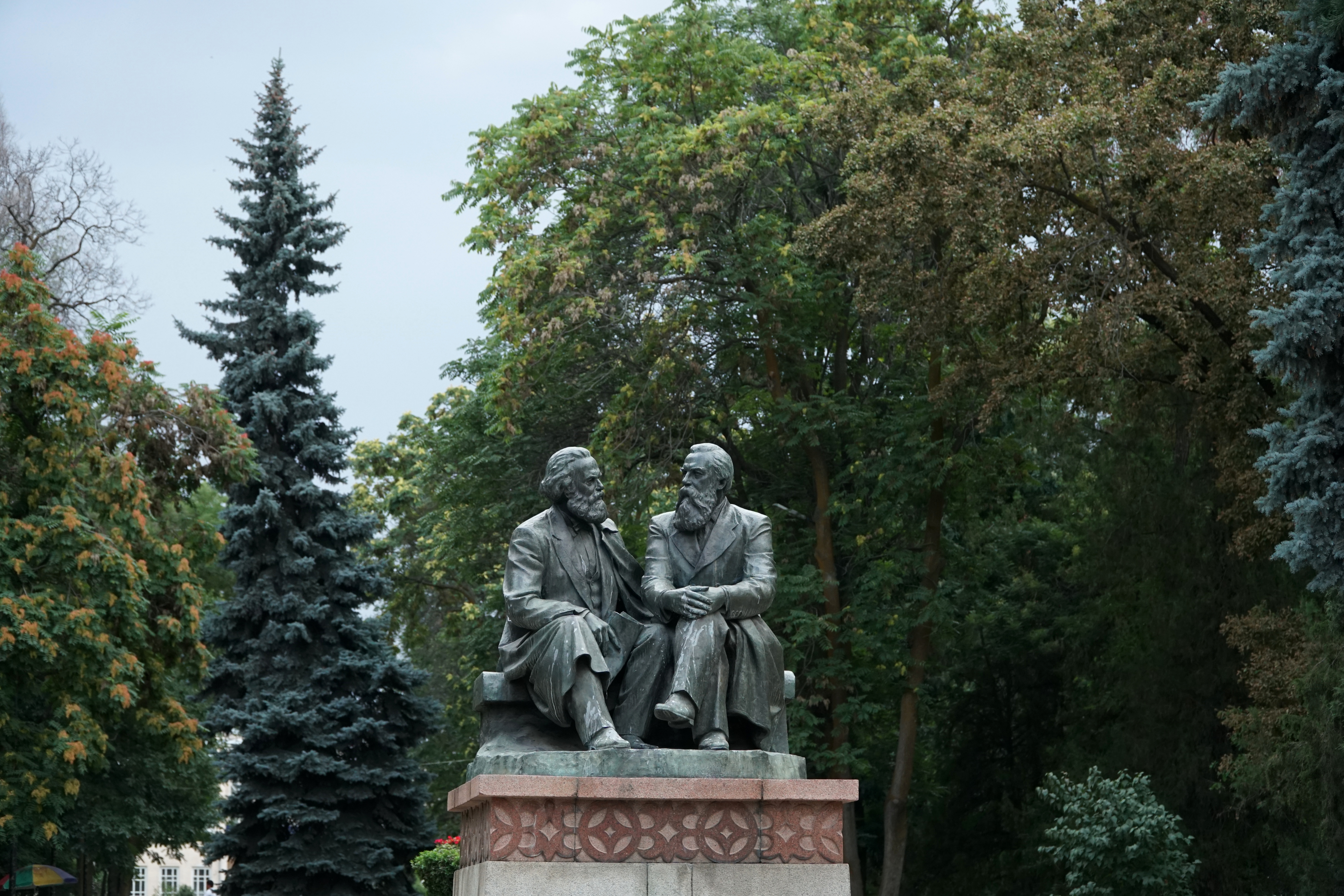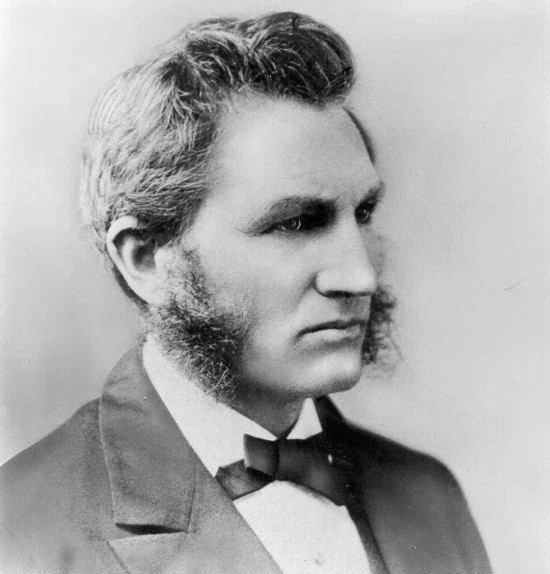|
Marxist Sociology
Marxist sociology refers to the application of Marxist perspective within the study of sociology.Johnson, Allan G. 2000. "Marxist sociology." Pp. 183–84 in '. Wiley-Blackwell. . Marxism itself can be recognized as both a political philosophy and a sociological method, insofar as it attempts to remain scientific, systematic, and objective rather than purely normative and prescriptive. Hence, Marxist sociology is "a form of conflict theory associated with…Marxism's objective of developing a positive (empirical) science of capitalist society as part of the mobilization of a revolutionary working class."Marxist Sociology " ''Encyclopedia of Sociology'' (2006). USA: . ... [...More Info...] [...Related Items...] OR: [Wikipedia] [Google] [Baidu] |
Statues Of Marx And Engels In Bishkek
A statue is a free-standing sculpture in which the realistic, full-length figures of persons or animals are carved or Casting (metalworking), cast in a durable material such as wood, metal or stone. Typical statues are life-sized or close to life-size; a sculpture that represents persons or animals in full figure but that is small enough to lift and carry is a statuette or figurine, whilst one more than twice life-size is a colossal statue. Statues have been produced in many cultures from prehistory to the present; the oldest-known statue dating to about 30,000 years ago. Statues represent many different people and animals, real and mythical. Many statues are placed in public places as public art. The world's tallest statue, ''Statue of Unity'', is tall and is located near the Narmada dam in Gujarat, India. Color Ancient statues often show the bare surface of the material of which they are made. For example, many people associate Greek classical art with white marble sculptu ... [...More Info...] [...Related Items...] OR: [Wikipedia] [Google] [Baidu] |
American Sociological Association
The American Sociological Association (ASA) is a non-profit organization dedicated to advancing the discipline and profession of sociology. Founded in December 1905 as the American Sociological Society at Johns Hopkins University by a group of fifty people, the first president of the association would be Lester Frank Ward. Today, most of its members work in academia, while around 20 percent of them work in government, business, or non-profit organizations. ASA publishes ten academic journals and magazines, along with four section journals. Among these publications, the ''American Sociological Review'' is perhaps the best known, while the newest is an open-access journal titled Socius: Sociological Research for a Dynamic World'. '' Contexts'' is one of their magazines, designed to share the study of sociology with other disciplines as well as the public. The ASA is currently the largest professional association of sociologists in the world, even larger than the International So ... [...More Info...] [...Related Items...] OR: [Wikipedia] [Google] [Baidu] |
Race (classification Of Human Beings)
A race is a categorization of human Humans (''Homo sapiens'') are the most abundant and widespread species of primate, characterized by bipedalism and exceptional cognitive skills due to a large and complex brain. This has enabled the development of advanced tools, cultu ...s based on shared physical or social qualities into groups generally viewed as distinct within a given society. The term came into common usage during the 1500s, when it was used to refer to groups of various kinds, including those characterized by close kinship relations. By the 17th century, the term began to refer to physical (phenotypical) traits, and then later to national affiliations. Modern science regards race as a social construct, an Identity (social science), identity which is assigned based on rules made by society. While partly based on physical similarities within groups, race does not have an inherent physical or biological meaning. The concept of race is foundational to racism, ... [...More Info...] [...Related Items...] OR: [Wikipedia] [Google] [Baidu] |
Gender
Gender is the range of characteristics pertaining to femininity and masculinity and differentiating between them. Depending on the context, this may include sex-based social structures (i.e. gender roles) and gender identity. Most cultures use a gender binary, in which gender is divided into two categories, and people are considered part of one or the other (boys/men and girls/women);Kevin L. Nadal, ''The SAGE Encyclopedia of Psychology and Gender'' (2017, ), page 401: "Most cultures currently construct their societies based on the understanding of gender binary—the two gender categorizations (male and female). Such societies divide their population based on biological sex assigned to individuals at birth to begin the process of gender socialization." those who are outside these groups may fall under the umbrella term ''non-binary''. Some societies have specific genders besides "man" and "woman", such as the hijras of South Asia; these are often referred to as ''third gende ... [...More Info...] [...Related Items...] OR: [Wikipedia] [Google] [Baidu] |
Culture
Culture () is an umbrella term which encompasses the social behavior, institutions, and norms found in human societies, as well as the knowledge, beliefs, arts, laws, customs, capabilities, and habits of the individuals in these groups.Tylor, Edward. (1871). Primitive Culture. Vol 1. New York: J.P. Putnam's Son Culture is often originated from or attributed to a specific region or location. Humans acquire culture through the learning processes of enculturation and socialization, which is shown by the diversity of cultures across societies. A cultural norm codifies acceptable conduct in society; it serves as a guideline for behavior, dress, language, and demeanor in a situation, which serves as a template for expectations in a social group. Accepting only a monoculture in a social group can bear risks, just as a single species can wither in the face of environmental change, for lack of functional responses to the change. Thus in military culture, valor is counted a typica ... [...More Info...] [...Related Items...] OR: [Wikipedia] [Google] [Baidu] |
State (polity)
A state is a centralized political organization that imposes and enforces rules over a population within a territory. There is no undisputed definition of a state. One widely used definition comes from the German sociologist Max Weber: a "state" is a polity that maintains a monopoly on the legitimate use of violence, although other definitions are not uncommon.Cudworth et al., 2007: p. 95Salmon, 2008p. 54 Absence of a state does not preclude the existence of a society, such as stateless societies like the Haudenosaunee Confederacy that "do not have either purely or even primarily political institutions or roles". The level of governance of a state, government being considered to form the fundamental apparatus of contemporary states, is used to determine whether it has failed. In a federal union, the term "state" is sometimes used to refer to the federated polities that make up the federation. (Other terms that are used in such federal systems may include “province”, � ... [...More Info...] [...Related Items...] OR: [Wikipedia] [Google] [Baidu] |
Social Class
A social class is a grouping of people into a set of Dominance hierarchy, hierarchical social categories, the most common being the Upper class, upper, Middle class, middle and Working class, lower classes. Membership in a social class can for example be dependent on education, wealth, occupation, income, and belonging to a particular subculture or social network. "Class" is a subject of analysis for List of sociologists, sociologists, political scientists, anthropologists and Social history, social historians. The term has a wide range of sometimes conflicting meanings, and there is no broad consensus on a definition of "class". Some people argue that due to social mobility, class boundaries do not exist. In common parlance, the term "social class" is usually synonymous with "Socioeconomic status, socio-economic class", defined as "people having the same social, economic, cultural, political or educational status", e.g., "the working class"; "an emerging professional class". H ... [...More Info...] [...Related Items...] OR: [Wikipedia] [Google] [Baidu] |
Verso Books
Verso Books (formerly New Left Books) is a left-wing publishing house based in London and New York City, founded in 1970 by the staff of ''New Left Review''. Renaming, new brand and logo Verso Books was originally known as New Left Books. The name "Verso" refers to the technical term for the left-hand page in a book (see recto and verso), and is a play on words regarding its political outlook and also reminds of the vice versa - "the other way around". History and details In 1970, Verso Books began as a paperbook imprint. It established itself as a publisher of nonfiction works on international politics, focusing on authors such as Tariq Ali. However, Verso Books has also published some fiction over the years as well. The publisher gained early recognition for translations of books by European thinkers, especially those from the Frankfurt School. Verso Books' best-selling title is the autobiography of Rigoberta Menchú, who was awarded the Nobel Peace Prize in 1992.Verso Books ... [...More Info...] [...Related Items...] OR: [Wikipedia] [Google] [Baidu] |
David Correia
David Correia is an American scholar and activist, and an associate professor of American Studies at the University of New Mexico, where his classes focus on the relationship between culture, politics, and the environment. Education and career Correia completed his undergraduate study in Anthropology at the University of Iowa and earned a Ph.D. in Geography from the University of Kentucky in 2006. Prior to his current appointment at the University of New Mexico, Correia taught at the University of Maine. In 2012 Correia was the recipient of the University of New Mexico's "Arts and Sciences Award for Teaching Excellence." Activism Correia has been frequently quoted and interviewed regarding police reform in the city of Albuquerque. Albuquerque police have killed 27 people since 2010. In April 2014, the Justice Department issuea report based on a long investigation, castigating the Albuquerque Police Department for engaging in "an unconstitutional pattern or practice of excess ... [...More Info...] [...Related Items...] OR: [Wikipedia] [Google] [Baidu] |
Capitalism
Capitalism is an economic system based on the private ownership of the means of production and their operation for Profit (economics), profit. Central characteristics of capitalism include capital accumulation, competitive markets, price system, private property, Property rights (economics), property rights recognition, voluntary exchange, and wage labor. In a market economy, decision-making and investments are determined by owners of wealth, property, or ability to maneuver capital or production ability in Capital market, capital and financial markets—whereas prices and the distribution of goods and services are mainly determined by competition in goods and services markets. Economists, historians, political economists and sociologists have adopted different perspectives in their analyses of capitalism and have recognized various forms of it in practice. These include ''Laissez-faire capitalism, laissez-faire'' or free-market capitalism, anarcho-capitalism, state capi ... [...More Info...] [...Related Items...] OR: [Wikipedia] [Google] [Baidu] |
Capital (economics)
In economics, capital goods or capital are "those durable produced goods that are in turn used as productive inputs for further production" of goods and services. At the macroeconomic level, "the nation's capital stock includes buildings, equipment, software, and inventories during a given year." A typical example is the machinery used in factories. Capital can be increased by the use of the factors of production, which however excludes certain durable goods like homes and personal automobiles that are not used in the production of saleable goods and services. Adam Smith defined capital as "that part of man's stock which he expects to afford him revenue". In economic models, capital is an input in the production function. The total physical capital at any given moment in time is referred to as the capital stock (not to be confused with the capital stock of a business entity). Capital goods, real capital, or capital assets are already-produced, durable goods or any non-fi ... [...More Info...] [...Related Items...] OR: [Wikipedia] [Google] [Baidu] |






